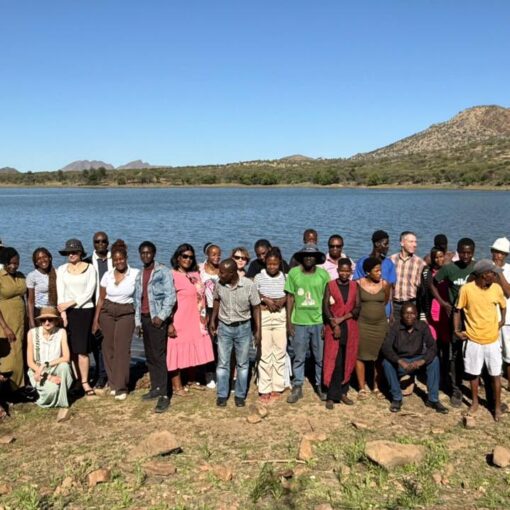Finland continues to rely on immigration to address labor shortages and support its economic growth. In 2023, a record 78,977 immigrants arrived, a significant increase from the previous years’ 29,000–36,000 range (Statistics Finland 2023). The largest group of migrants came from Russia, driven by family ties and the ongoing conflict, while countries like the Philippines, Sri Lanka, India, and China contributed to the flow of labor migrants, with many seeking employment, educational opportunities, and improved living conditions (Migration Agency 2024).
Despite the positive economic impact of immigration, foreign workers face several obstacles in the labor market, especially in SMEs that often rely on foreign labor to fill critical skill gaps. In many regions the lack of workforce is so bad that without employing foreign workers, the company would not have had a future. Also, senior experts in industries such as mining, nano technology, audio visual or IT business are just lacking in Finland (Niemi et al. 2024.) Research shows that diverse teams tend to produce more innovative products and services, giving companies a competitive edge (Akula & Associates P.C. 2023).
Key challenges faced by foreign workers
According to the research of Timofeeva (2024) international students face challenges in the Finnish labor market. 80.6% of respondents experienced language barriers at work, 61.3% faced cultural and social challenges including challenges with cultural differences and experiencing discrimination. Moreover, 35.5% encountered economic difficulties due to lower wages and limited access to social benefits. Legal challenges such as difficulties in obtaining work permits and dealing with residence permit issues were faced by 25.8%.
From interviews Timofeeva (2024) gained insights into the challenges international students had experiences while being employed. They reported on language barriers which made communication with colleagues and clients difficult, leading to misunderstandings, mistakes, and even conflicts. Language barriers also caused feelings of isolation and undervaluation, resulting in stress and dissatisfaction.
Cultural differences were also experienced in conflict resolution. In abroad issues are often addressed directly, whereas in Finland problems were often reported to a manager. Challenges were also experienced in how prior work experience was not recognized which led to lower wages and hindered professional development here in Finland. A fact is that many foreigners that move to Finland to study have often many years of work experience from their home countries which is often not considered in salary discussions by Finnish employers. A positive research finding was that international students as employees received moral support from management after being insulted by Finnish customers for not speaking Finnish.

Recommendations for employers and government agencies
Foreign workers in Finland face significant challenges and both employers and government agencies play a key role in addressing these issues, ensuring better integration and well-being for foreign workers.
Employers offering language training programs or subsidies for foreign workers can greatly improve communication, reduce misunderstandings, and enhance productivity. Cultural competency trainings to all staff can help employees in understanding different cultural norms, values, and communication styles better. These kinds of trainings foster empathy, reduce conflicts, and improve teamwork by promoting a deeper understanding of diverse perspectives. They are offered e.g. by the Language Centre of LAB University of Applied Sciences (LUT Universities 2024).
The government should also monitor wage disparities between foreign and native workers, particularly in SMEs, where wage oversight may be weaker. Moreover, improving access to mental health support is vital. Offering subsidized counseling services or establishing partnerships with local organizations would help foreign workers in managing work-related stress and cultural adjustment.
In conclusion, Finland is a country with positive immigration. Language barriers, cultural, social, economic, and legal challenges create challenges for migrants to work in Finland. The recommendations outlined in this article aim to foster a corporate culture that prioritizes diversity and provides equal opportunities for all workers, regard-less of their background.
Authors
Maria Timofeeva graduated with a Bachelor of International Business LAB University of Applied Sciences in December 2024.
Jaana Häkli is Senior Lecturer at LAB University of Applied Sciences.
References
Akula & Associates P.C. 2023. The Benefits of Hiring Foreign Workers for Your Business. Akula & Associates P.C. Cited 7 Dec 2024. Available at https://www.akulalaw.com/blog/2023/june/the-benefits-of-hiring-foreign-workers-for-your-2/.
Fauxels. 2019. Group of People Gathered Around Wooden Table. Pexels. Cited 18 Dec 2024. Available at Group of People Gathered Around Wooden Table · Free Stock Photo
LUT Universities. 2024. LAB Täydennyskoulutus. Cited 18 Dec 2024. Available at https://www.lutuniversities.fi/fi/opiskele/taydennyskoulutus/lab
Migration Agency (Migri). 2024. Decisions. Finnish Immigration Service Statistics. Cited 7 Dec 2024. Available at https://tilastot.migri.fi/#decisions
Niemi, M., Välimäki, M. & Niskanen, V. 2024. PK-yritykset ja kansainvälinen rekrytointi: kokemuksia, tukea, ratkaisuja. PK-yritykset ja ulkomaalainen työvoima Suomessa (PIKEUS) -hankkeen loppuraportti. E2 Tutkimus. Cited 18 Dec. Available at https://www.e2.fi/tutkimusteemat/hankkeet/pk-yritykset-ja-ulkomaalainen-tyovoima-suomessa.html
Statistics Finland 2023. Immigration record high in Finland in 2023. Cited 7 Dec 2024. Available at: https://stat.fi/en/publication/clmixlq2e5fnt0bw60d4l2t7g
Timofeeva, M. 2024. Challenges of foreign workers in Finnish SMEs. Thesis. LAB University of Applied Sciences. Cited 18 Dec 2024. Available at https://www.theseus.fi/bitstream/handle/10024/872976/Maria_Timofeeva.pdf?sequence=2&isAllowed=y




